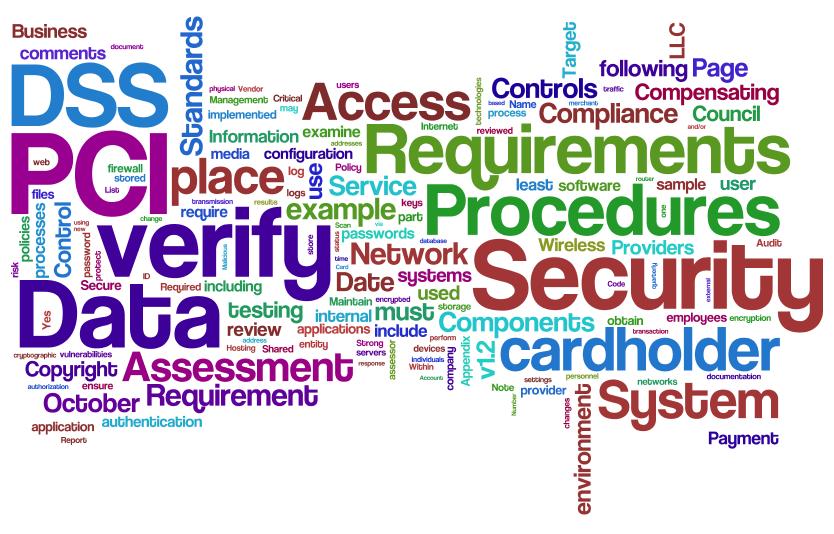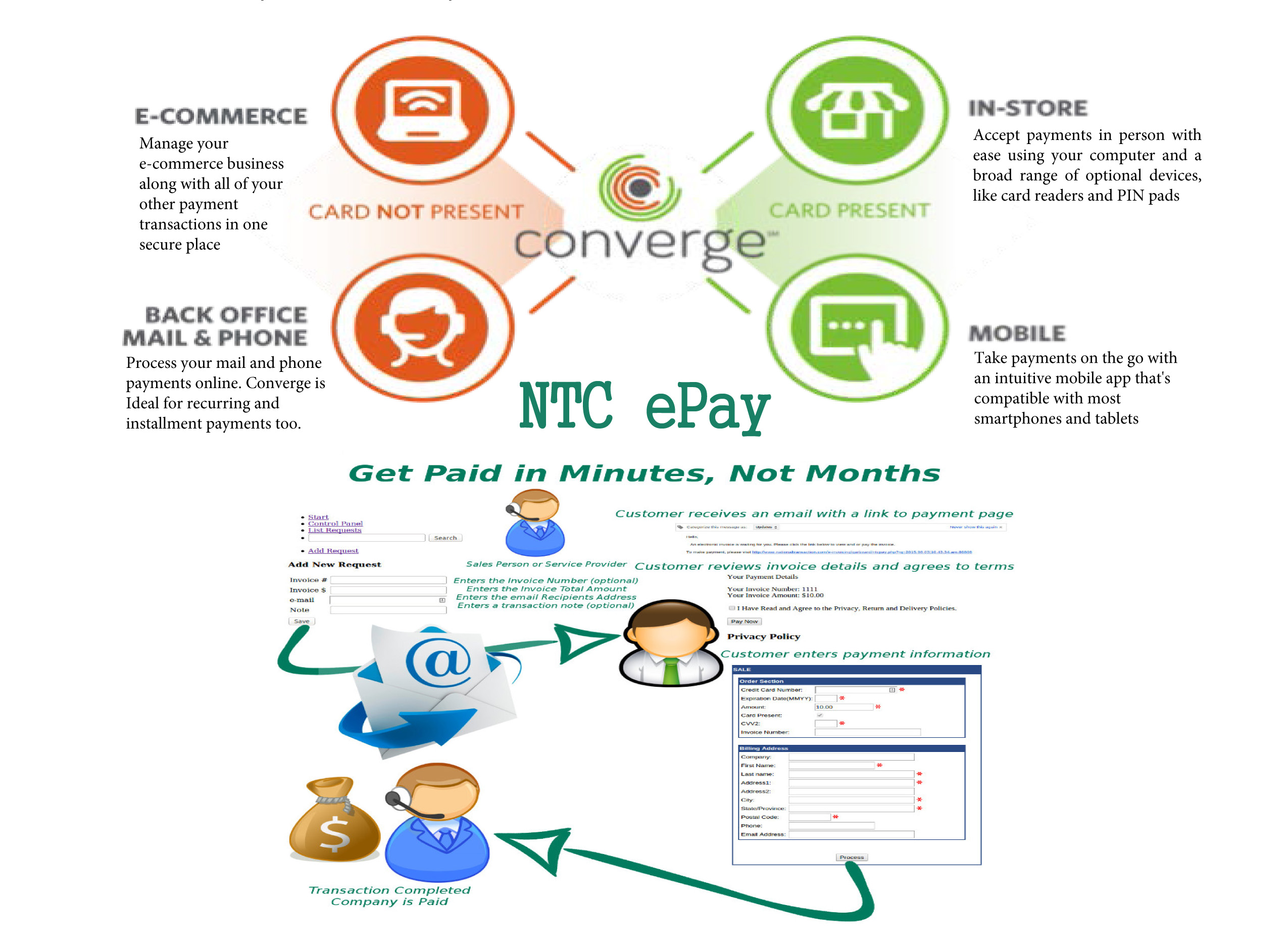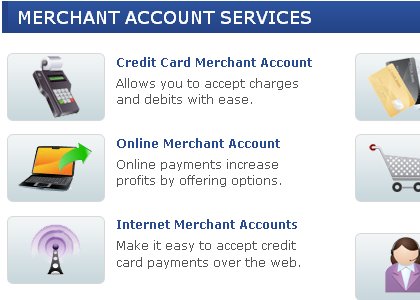
September 29th, 2016 by Elma Jane
MerchantConnect is a great tool for merchants because it contains all the information that a merchant needs to manage their electronic payment activity. Furthermore, it’s fast, easy and secure!
- Merchant can either view or update account information and make changes.
- Find copies of statements.
- Furthermore find valuable products and services to help merchant with their business.
View recent deposits and other information about account activity including:
- Batch Details
- Chargeback
- Retrieval Status
- Deposit History
The merchant can also find news and information to help manage payments at your business. Learn how to:
- Best Qualify Transactions
- Reduce Risk
- Manage Chargebacks
- Find reference guides to help operate your payment terminal
The merchant can also utilize the BIN Lookup when you need to inquire about which bank issued a particular card. Simply enter the first six digits on the card and you will receive the information on the issuing bank, including contact information.
If you need a to set-up an account and want to use this tool give us a call at 888-996-2273
Posted in Best Practices for Merchants, Electronic Check Services, Electronic Payments Tagged with: bank, card, chargeback, electronic payment, merchants, payments, risk, terminal, transactions
September 23rd, 2016 by Elma Jane
What is ARC, IATA, and CLIA? what’s the difference? What it does and what type of agents would benefit most from it.
CLIA Number – is a way for vendors to identify you as a travel agent. It is issued by the Cruise Lines International Association; without the ARC accreditation, CLIA agencies cannot issue airline tickets since CLIA numbers were designed specifically for cruise-focused travel agencies.
You don’t need to get your own CLIA number if you’re working with a host agency. You can always go under their umbrella organization and use their identification number therefore, it won’t incur the costs associated with obtaining your own CLIA number.
If you are not issuing airline tickets, CLIA is a practical option because it is NOT accepted by the airlines, but nearly accepted everywhere.
CLIA vs. ARC/IATA Number – If you’re ticketing air-only reservation, ARC and IATA are must-haves.
ARC (Airlines Reporting Corporation) – gives out these ARC numbers to accredited agencies, which allows travel agencies to issue airline tickets.
The use of an ARC number extends from either a hotel to a cruise ship booking not only air tickets for travel agencies.
For a home-based travel agent or a storefront agency that only books leisure travel (no air), having your own ARC number seems too much.
IATA – International Air Transport Association Network use extensive data resource to connect the suppliers to the U.S. travel distribution network.
IATA ID card holders get promotional benefits. A concessionary incentives from suppliers (participating members) who identify the agent with an IATA/IATAN number as a valid associate; in addition to approving travel agents for the sale of travel tickets.
IATA certifies either a referral agent or an affiliate travel agent to find clients for the hosting travel agency’s business needs as well.
Give us a call 888-996-2273 and and process your travel agency payments for less!
Posted in Best Practices for Merchants, Travel Agency Agents Tagged with: card holders, payments, travel, travel agencies, travel agent

September 21st, 2016 by Elma Jane
PCI compliance applies to any company, organization or merchant of any size or transaction volume that either accepts, stores or transmits cardholder data.
Any merchant accepting payments directly from the customer via credit or debit card must be Compliant. The merchant themselves are therefore responsible for becoming Compliant, as the deadline for the merchant becomes overdue.
Understanding and knowing the details of Payment Card Industry Compliance can help you better prepare your business. Because failing and waiting to become compliant or ignoring them, could end up being an expensive mistake.
The VISA regulations have to adhere to the PCI standard forms as part of the operating regulations. The regulations signed when you open an account at the bank. The rules under which merchants are allowed to operate merchant accounts.
The Payment Card Industry Data Security Standard (PCI DSS) is a proprietary information security standard for organizations that handle branded credit cards from the major card schemes including Visa, MasterCard, American Express, Discover, and JCB.
Posted in Best Practices for Merchants, Credit Card Security, Payment Card Industry PCI Security, Visa MasterCard American Express Tagged with: American Express, cardholder, compliance, credit, customer, data, debit card, Discover, jcb, MasterCard, merchant, Payment Card Industry, payments, PCI, transaction, visa

September 16th, 2016 by Elma Jane
National Transaction offer valuable features and benefits, if you want to improve your business’s productivity, you should look for the following features below, that you need from your Electronic Payments provider.
Advanced Security Options – 6 out of 10 small businesses close within six months of a card data breach, it is important that Point-of-Sale devices should have appropriate security measures, particularly EMV, encryption and tokenization. NTC offer Safe-T for Small and Medium Businesses and Safe-T for Large Businesses. The Top-tier security is important on your business’s data especially customer information, consider adding additional authentication procedures.
Fast Payment Processing – first step is having up-to-date technology, because some customers might leave, the sooner you have the money processed by your provider, the bigger and stronger your business can become. NTC is adept at administering payments quickly and efficiently. We can provide regular funding or next day funding.
Feature Flexibility – obtaining the features you need from your payment services provider is very important. Look for a provider that appropriately addresses your payment concerns.
Mobile Payment Processing – NTC offer Virtual Merchant/Converge Mobile that gives you the ability to accept payments using your smartphone or tablet anywhere you go. Furthermore, the app works with most Apple and Android mobile devices. Accept a key-entered transactions or swipe cards using an encryption reader. You can now take chip card payments using Ingenico iCMP PIN Pad or the new RP457c card reader.
Reliable Customer Support – NTC is available 24/7, the phones are answered by humans and not automated systems. You got support with your hardware, answer questions and guide you to better understand the process. Customer support is the most important feature of any business partnership you make. At NTC we are very passionate about that.
Up-to-Date Tech – futuristic features, like mobile payment abilities, EMV/NFC, contactless payments are worth investing. Modern consumers are generally more familiar with up-to-date payment systems. Seeing a payment service provider offer a swipe-only terminal should be a red flag, because the recent regulations require merchants to have EMV to provide better data security.
Posted in Best Practices for Merchants, Credit Card Security, Electronic Payments, EMV EuroPay MasterCard Visa, Mobile Payments, Mobile Point of Sale, Near Field Communication, Point of Sale, Smartphone Tagged with: Breach, card data, card reader, chip card, contactless payments, data, EMV, encryption, merchants, mobile, mobile payment, nfc, payments, Payments provider, point of sale, provider, Security, service provider, smartphone, swipe, tablet, terminal, tokenization, transactions
September 15th, 2016 by Elma Jane
Storing credit card data for recurring billing are discouraged.
But many feels storing is necessary in order to facilitate recurring payments.
Using a third party vault provider to store credit card data for recurring billing is the best way.
It helps reduce or eliminate the need for electronically stored cardholder data while still maintaining current business processes.
For recurring billing a token can be use, by utilizing a vault. The risk is removed from your possession.
Modern payment gateways allow card tokenization.
Any business that storing data needs to review and follow PCI DSS requirement in order for the electronic storage of cardholder data to be PCI compliant.
On the primary account number, an appropriate encryption will be applied. In this situation, the numbers in the electronic file should be encrypted either at the column level, file level or disk level.
Posted in Best Practices for Merchants, Credit Card Security Tagged with: billing, cardholder, credit card, data, payment gateways, payments, PCI, recurring, token, tokenization

August 25th, 2016 by Elma Jane
Chargeback bumps still not clear, yet some says consumers are taking advantage of the chargeback system, while others think this increase is due to EMV implementation. Same as other countries experienced.
Whatever the reason, these chargebacks are causing stir in the payments industry.
Merchants should know two facts because of the tide in chargebacks:
- Merchants should not be accountable for chargebacks on valid, non-fraudulent cards without chips.
- Additionally, merchants who do not have EMV terminals are at a higher risk for fraud.
- The merchant is held responsible not the bank if fraud is involved as a result of card swipe.
There are a few things that merchants can do to prevent chargebacks.
- Always swipe non-chip cards rather doing it manually.
- Ask for a signature and verify each transaction.
- Be on the lookout for fraudulent cards.
- EMV chip card should not be swipe or manually keyed in.
- Follow chip card processing procedures, insert them correctly and guide your customers through the chip transaction process.
- If the chip card payment fails, ask for an alternate form of payment. Most of all do not override or swipe the chip card.
- If you have to manually enter a card number, use the security code, check the expiration date and further more take an imprint.
Better be equipped to stop chargebacks by adopting few changes in your business before they happen. If your business is not yet EMV compliant, give us a call at 888-996-2273 or visit us at www.nationaltransction.com
Posted in Best Practices for Merchants, EMV EuroPay MasterCard Visa Tagged with: chargeback, EMV, fraud, merchants, payments, terminals

August 23rd, 2016 by Elma Jane
Bank claims that they no longer support QuickBooks Direct Connect as of May 2016. As a result of product changes. It would be nice if QuickBooks would take time and prominently post that fact.
For those interested in QuickBooks plugin NTC has a special offer for the next 30 days!
In conclusion, QuickBooks geared mainly toward small and medium-sized businesses and also offer on business premises accounting applications as well as cloud based version that accept business payments, manage and pay bills, and payroll functions.
For more information about your payment needs give us a call at 888-996-2273 or go to www.nationaltransaction.com
Posted in Best Practices for Merchants Tagged with: bank, payments

August 19th, 2016 by Elma Jane
Merchant aggregator is an entity that can run many transactions through a single merchant account, an opposite to the traditional account since you’re the sole owner.
Preferred for a smaller business because its not intended as a long term scalable solution to accepting payments.
For businesses that want to expand their processing needs, traditional merchant account will outgrow an aggregator, since the goal is for a business to grow, but it will always come to what’s best for individual business.
While you have the pros of quick application process and instant approval there are a lot of cons to check before getting an aggregator account.
CONS of an aggregator account:
CUSTOMER SERVICE – aggregators are hard to get hold of.
FEES – fixed fees .
FREQUENT HOLDS and DELAY OF FUNDS – aggregators hold funds 24-48 hours before depositing, while longer holds occur 30 days.
LOWER LIMITS – processing limits lower, annual limit of $100k.
PROS of a Traditional Account:
CUSTOMER SERVICE – 24/7 technical support.
FUNDS – next day funding, no frequent account holds.
FEES – tailored to your business needs.
LIMITS – varies by financial strength and business
For more information in setting up an account with NTC give us a call at 888-996-2273 or go to www.nationaltransaction.com
Posted in Best Practices for Merchants, Merchant Services Account Tagged with: fees, funds, merchant account, Merchant aggregator, payments, transactions

August 9th, 2016 by Elma Jane
Businesses are discouraged from storing credit card data, but many feel the practice is necessary in order to facilitate recurring payments. Merchants that need to store credit card data are doing it for recurring billing.
Using a third party vault provider is the best way to store credit card data for recurring billing, it helps reduce or eliminate the need for electronically stored cardholder data while still maintaining current business processes. The risk of storing card data is removed from your possession and you are given back a token that can be used for the purpose of recurring billing, by utilizing a vault. Modern payment gateways allow card tokenization.
Any business that storing data via hard copy needs to review and follow PCI DSS requirement in order for the electronic storage of cardholder data to be PCI compliant. Appropriate encryption must be applied to the PAN (primary account number). In this situation, the numbers in the electronic file should be encrypted either at the column level, file level or disk level.
Posted in Best Practices for Merchants, Payment Card Industry PCI Security, Travel Agency Agents Tagged with: cardholder, credit card, data, merchants, payment gateways, payments, PCI, provider, tokenization

August 1st, 2016 by Elma Jane
ASTA/NACTA Florida Summit & FAM Trip with Richard Delos Santos, NTC Specialist; and Robert Duglin, Vice President of Business Development at ASTA (American Society of Travel Agents) and NACTA: The National Association of Career Travel Agents
National Transaction the Payments Expert for Travel Agency! For more information give us a call at 888-996-2273.
Posted in Best Practices for Merchants, Travel Agency Agents Tagged with: payments, travel agency, travel agents







